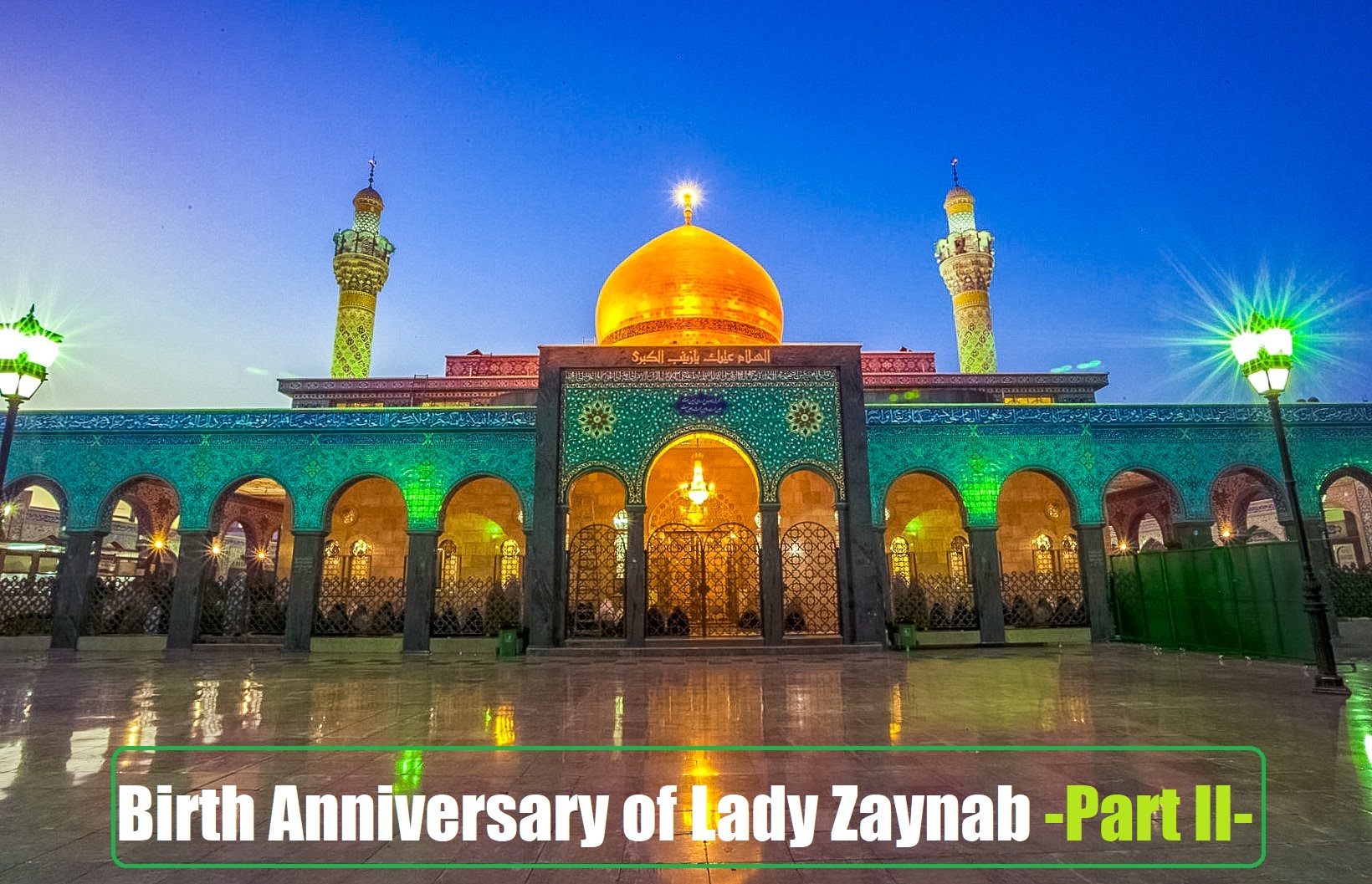According to the shari'ah (revealed law) of Allah women are hidden treasures, neither to be displayed nor advertised. Their is a subtle, fundamental and discreet domain. Imam Ali (A.S.) once asked Lady Fatima (A.S.) "Ma khayru 'n-nisa (who are the best among women)?"
She replied, "La yarina 'r-rijala wa la yarunahunna (those who do not see men nor are seen by them)."
This then is another reason why so little is known about Zaynab (A.S.) or any other women throughout the history of Islam. But this rule can only apply if all the other elements of a pure Muslim society are equal. If the application of the divinely directed formula is chaotic and imbalanced, then that is the time when a woman feels compelled to emerge into the open arena. This is the situation in which Zaynab (A.S.) found herself. After Karbala no one was left that had the courage to stand up to tyranny, speak the truth, and submit to the consequences.
Thus what we know of her is only because of exceptional circumstances. A twist in history created the conditions that forced Zaynab [a.s] to declare, not herself, but the truth. It is through her extraordinary handling of the wretched trials she endured that we have caught glimpses of the untold depths of her courage, forbearance, patience and submission to the decree of Allah. It is partly through her that the prophetic legacy was rescued from being eclipsed by the ever-present shadows of kufr (denial of Truth), and it is in this light that we must forever remember her and take inspiration and guidance from her example.
Angelic Appellation
It was five years after the Muslims had accompanied the Prophet [s.a.w.] and his family in the migration (hijrah) to Medina, when the Holy Prophet's daughter, Lady Fatima (A.S.), gave birth to a little girl. When her father, Imam Ali (A.S.), saw his daughter for the first time Imam Husayn (A.S.), who was then almost three years old, was with him. The boy exclaimed in delight, "O father, Allah has given me a sister." At those words Imam Ali (A.S.) began to weep, and when Husayn (A.S.) asked why he was crying so, his father answered that he would soon come to know. Fatima (A.S.) and Ali (A.S.) did not name their child until a few days after her birth, for they awaited the Prophet's return from a journey so that he could propose the name.
When finally the baby girl was brought before him he held her in his lap and kissed her. The Angel Jibra'il came to him and conveyed the name that was to be hers, and then he began to weep.
The Prophet [s.a.w.] asked why Jibra'il wept and he answered, "O Prophet of Allah, from early on in life this girl will remain entangled in tribulations and trials in this world.- First she will weep over your separation (from this world); thereafter she will bemoan the loss of her mother, then her father, and then her brother Hasan. After all this she will be confronted with the trials of the land of Karbala and the tribulations of that lonely desert, as a result of which her hair will turn grey and her back will be bent."
When the members of the family heard this prophecy they all broke down in tears. Imam Husayn (A.S.) now understood why earlier his father had also wept. Then the Prophet [s.a.w.] named her Zaynab (A.S.).
When the news of Zaynab's birth reached Salman al-Farsi, he went to Ali (A.S.) to congratulate him. But instead of seeing him happy and rejoicing he saw Ali (A.S.) shed tears, and he too was apprised of the events of Karbala and the hardships that were to befall Zaynab (A.S.).
One day, when Zaynab (A.S.) was about five years old, she had a strange and terrible dream. A violent wind arose in the city and darkened the earth and the sky. The little girl was tossed hither and thither, and suddenly she found herself stuck in the branches of a huge tree. But the wind was so strong that it uprooted the tree. Zaynab (A.S.) caught hold of a branch but that broke. In a panic she grabbed two twigs but these too gave way and she was left falling with no support.
Then she woke up. When she told her grandfather, the Prophet [s.a.w.], about this dream he wept bitterly and said, "O my daughter that tree is me who is shortly going to leave this world.
The branches are your father Ali and your mother Fatima Zahra, and the twigs are your brothers Hasan and Husayn. They will all depart this world before you do, and you will suffer their separation and loss."

